BLOOD GROUPS & TYPES История




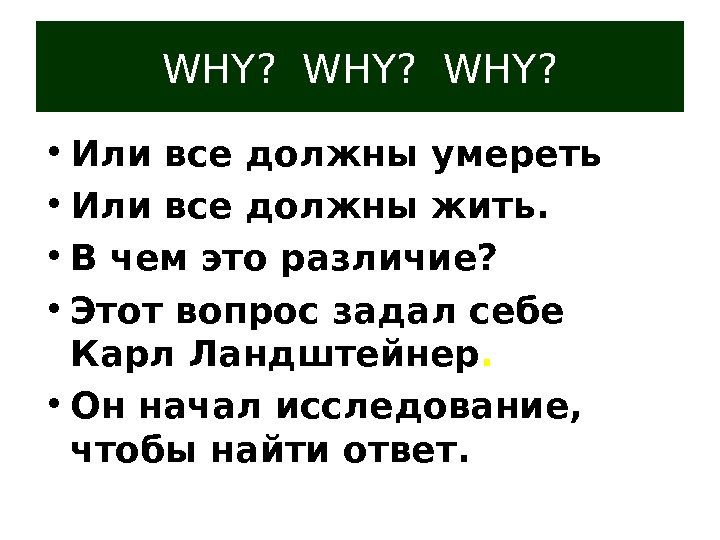
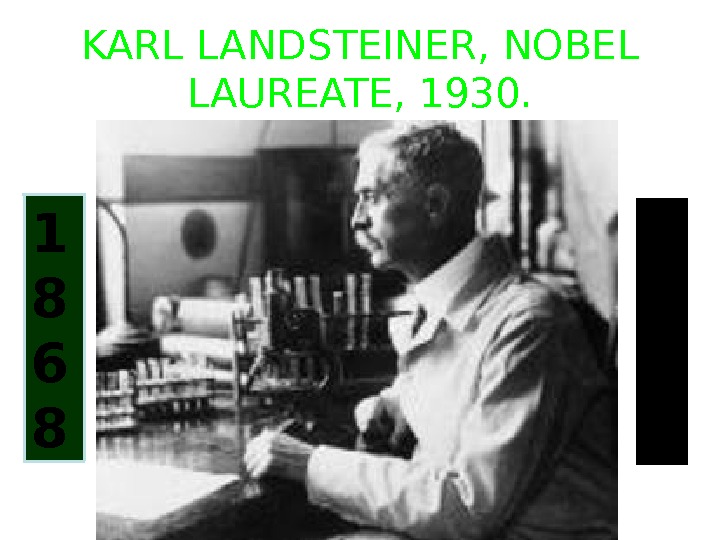



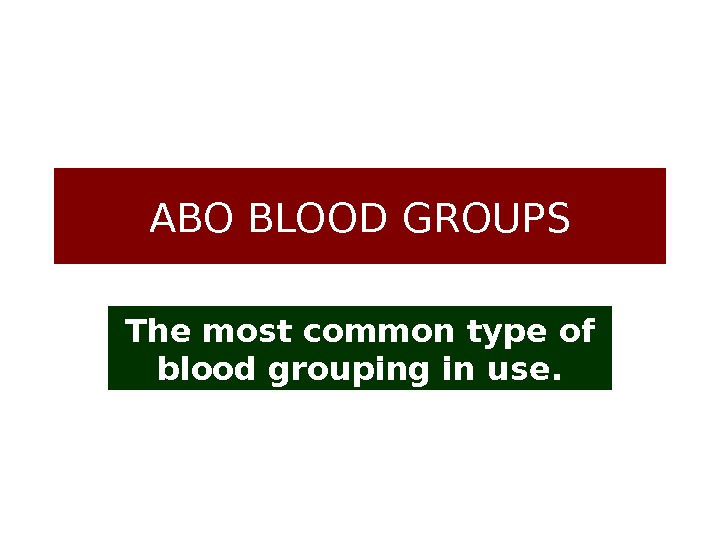
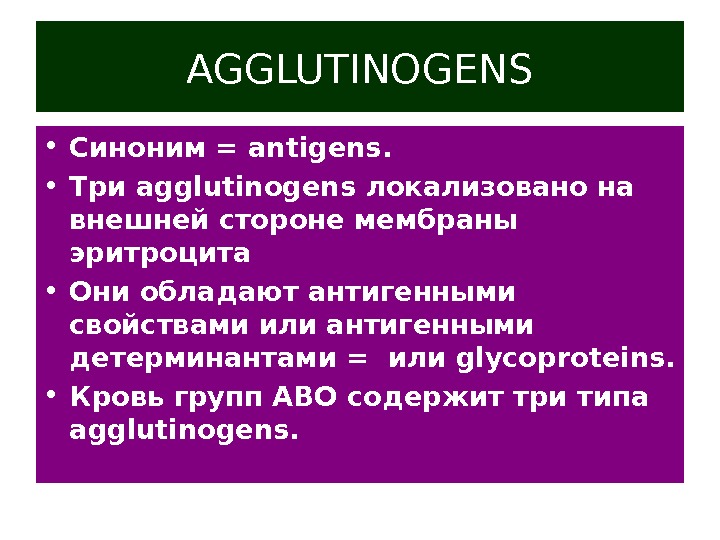


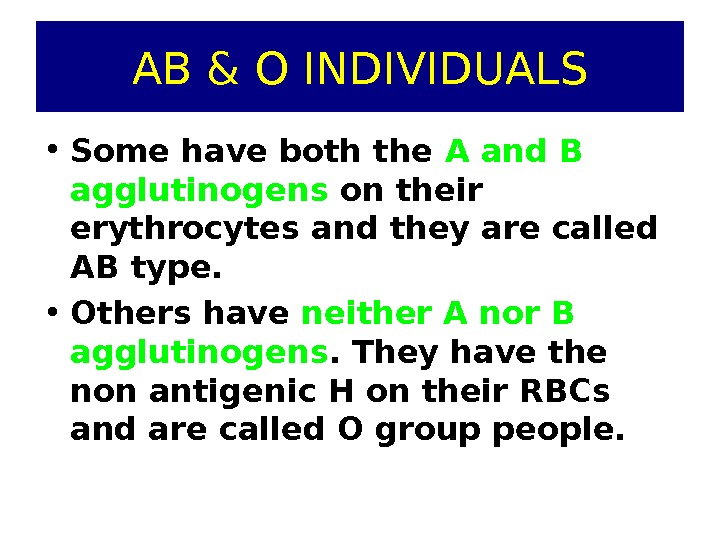


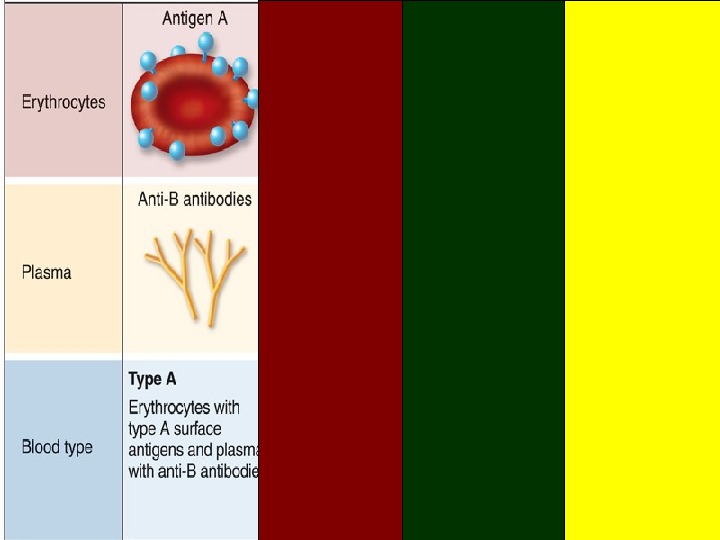

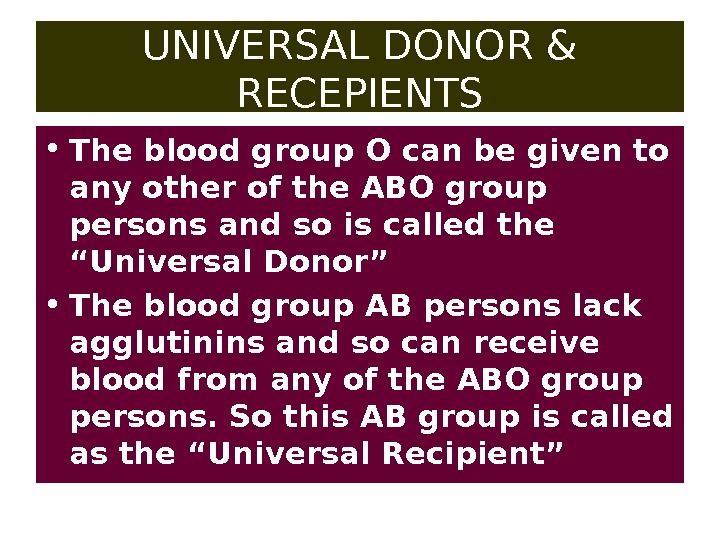
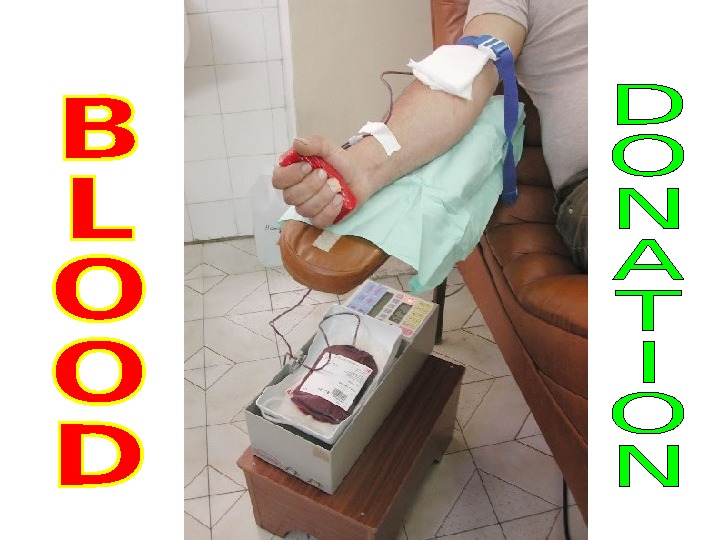


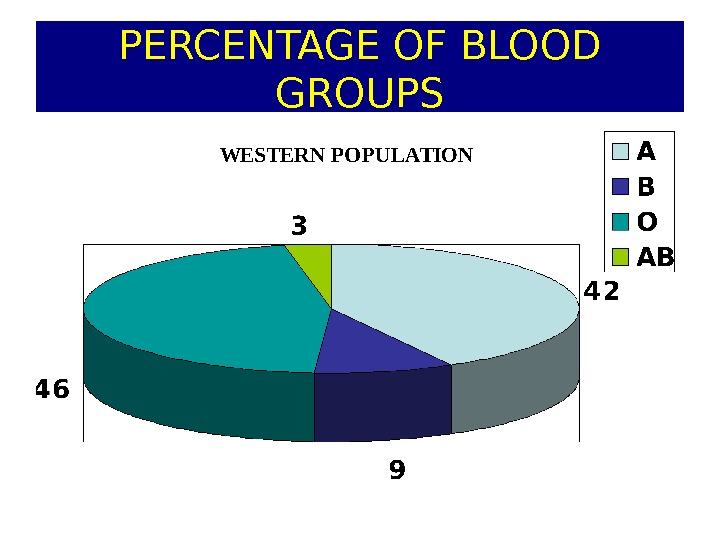


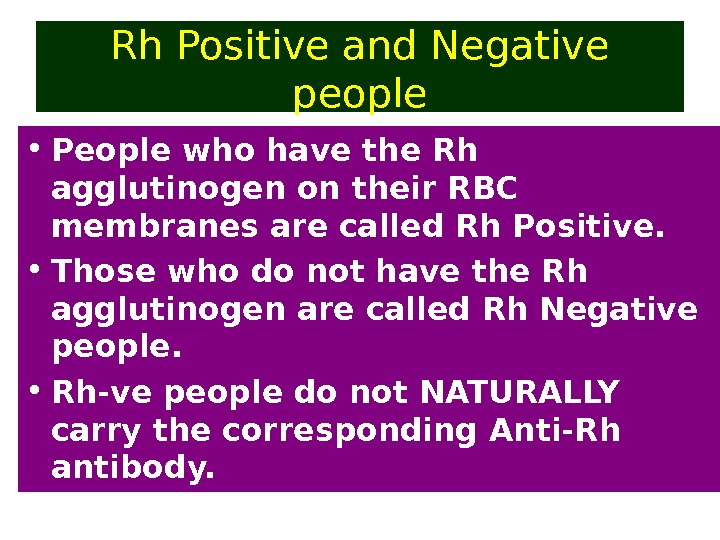
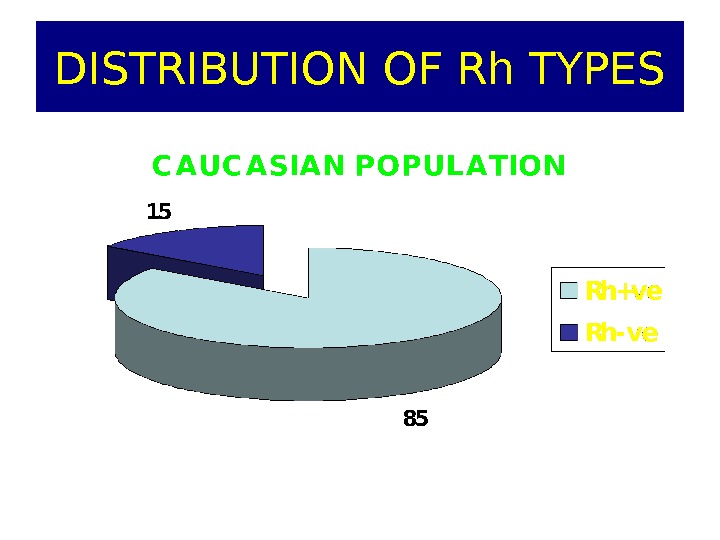

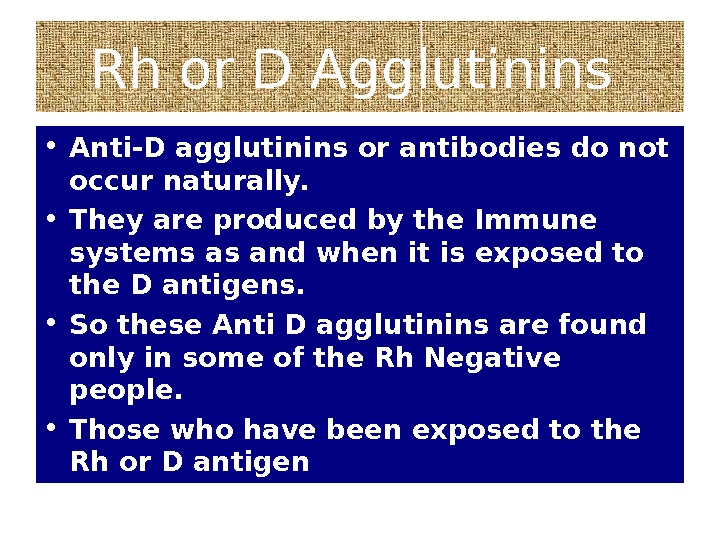
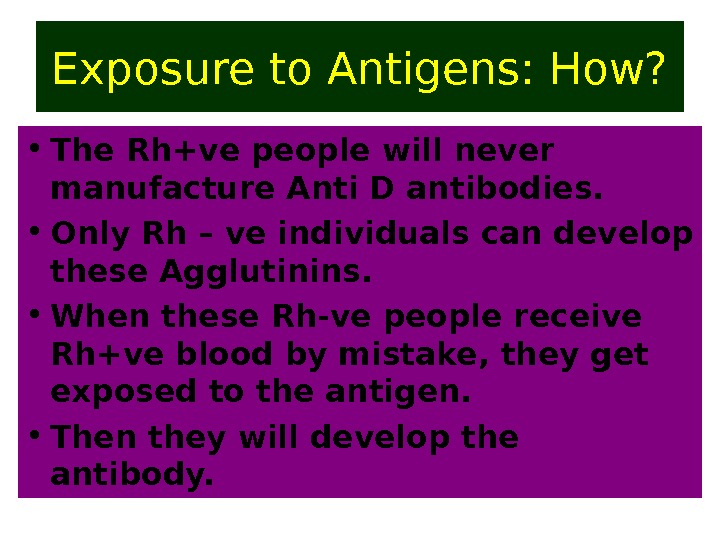


- Размер: 732.5 Кб
- Количество слайдов: 31
Описание презентации BLOOD GROUPS & TYPES История по слайдам

 BLOOD GROUPS & TYPES
BLOOD GROUPS & TYPES
 История • 19 th CENTURY: Boer War • Massive deaths of people: – Many infections – Severe blood loss • Attempts to transfuse blood began. • They had confusing results. • Some people recovered fully. • Others died.
История • 19 th CENTURY: Boer War • Massive deaths of people: – Many infections – Severe blood loss • Attempts to transfuse blood began. • They had confusing results. • Some people recovered fully. • Others died.
 WHY? • Или все должны умереть • Или все должны жить. • В чем это различие ? • Этот вопрос задал себе Карл Ландштейнер. • Он начал исследование, чтобы найти ответ.
WHY? • Или все должны умереть • Или все должны жить. • В чем это различие ? • Этот вопрос задал себе Карл Ландштейнер. • Он начал исследование, чтобы найти ответ.
 KARL LANDSTEINER, NOBEL LAUREATE, 1930.
KARL LANDSTEINER, NOBEL LAUREATE, 1930.
 KARL LANDSTEINER • Wondered about this phenomenon. • Studied this extensively. • Discovered Blood Groups and types single handedly. • Framed the Landsteiner’s Law in 1904. • Continued to research on Blood groups and types till his death in 1943.
KARL LANDSTEINER • Wondered about this phenomenon. • Studied this extensively. • Discovered Blood Groups and types single handedly. • Framed the Landsteiner’s Law in 1904. • Continued to research on Blood groups and types till his death in 1943.
 LANDSTEINER’S LAW 1. “If an agglutinogen is present in the red cells of a blood, the corresponding agglutinin must be absent from the plasma. ” 2. “If an agglutinogen is absent in the red cells of a blood, the corresponding agglutinin must be present in it’s plasma. ”
LANDSTEINER’S LAW 1. “If an agglutinogen is present in the red cells of a blood, the corresponding agglutinin must be absent from the plasma. ” 2. “If an agglutinogen is absent in the red cells of a blood, the corresponding agglutinin must be present in it’s plasma. ”
 LANDSTEINER’S LAW: APPLICABILITY • Первый закон применяется для всех групп и типов крови. • Вторая часть Закона важна, но не всегда верна. • Это верно для группы крови ABO. • Rh, M, N и другие группы и типы крови не следуют второго правила закона Ландштейнера.
LANDSTEINER’S LAW: APPLICABILITY • Первый закон применяется для всех групп и типов крови. • Вторая часть Закона важна, но не всегда верна. • Это верно для группы крови ABO. • Rh, M, N и другие группы и типы крови не следуют второго правила закона Ландштейнера.
 ABO BLOOD GROUPS The most common type of blood grouping in use.
ABO BLOOD GROUPS The most common type of blood grouping in use.
 AGGLUTINOGENS • Синоним = antigens. • Три agglutinogens локализовано на внешней стороне мембраны эритроцита • Они обладают антигенными свойствами или антигенными детерминантами = или glycoproteins. • Кровь групп ABO содержит три типа agglutinogens.
AGGLUTINOGENS • Синоним = antigens. • Три agglutinogens локализовано на внешней стороне мембраны эритроцита • Они обладают антигенными свойствами или антигенными детерминантами = или glycoproteins. • Кровь групп ABO содержит три типа agglutinogens.
 AGGLUTINOGENS (Contd) • Некоторые люди имеют эритроциты с agglutinogen “A”. • Другие имеют “B” agglutinogen • Третий тип agglutinogen не является antigenic и называется “H” • H не вызывает продукцию antibodies. • Люди, имеющие H antigen , относятся к группе крови O.
AGGLUTINOGENS (Contd) • Некоторые люди имеют эритроциты с agglutinogen “A”. • Другие имеют “B” agglutinogen • Третий тип agglutinogen не является antigenic и называется “H” • H не вызывает продукцию antibodies. • Люди, имеющие H antigen , относятся к группе крови O.
 A AND B, INDIVIDUALS • Those having the A agglutinogen on their erythrocytes are called A blood group people. • Those having the B agglutinogen are called the B blood group people.
A AND B, INDIVIDUALS • Those having the A agglutinogen on their erythrocytes are called A blood group people. • Those having the B agglutinogen are called the B blood group people.
 • Some have both the A and B agglutinogens on their erythrocytes and they are called AB type. • Others have neither A nor B agglutinogens. They have the non antigenic H on their RBCs and are called O group people. AB & O INDIVIDUALS
• Some have both the A and B agglutinogens on their erythrocytes and they are called AB type. • Others have neither A nor B agglutinogens. They have the non antigenic H on their RBCs and are called O group people. AB & O INDIVIDUALS
 AGGLUTININS • The antibodies to the agglutinogens are called Agglutinins. • These are present naturally in ABO groups. • They are always present in the plasma of the individual. • There are two types of agglutinins in the ABO blood system: – Anti A or α : Alpha – Anti B or β : Beta
AGGLUTININS • The antibodies to the agglutinogens are called Agglutinins. • These are present naturally in ABO groups. • They are always present in the plasma of the individual. • There are two types of agglutinins in the ABO blood system: – Anti A or α : Alpha – Anti B or β : Beta
 AGGLUTININS (Contd) • The A group people have the Beta or anti B agglutinin in their plasma. • Similarly the B group people have the Alpha or Anti-A agglutinin in their plasma. • The AB group of people have no agglutinins in their plasma. • The O group people have both Alpha and Beta types of agglutinins in their plasma.
AGGLUTININS (Contd) • The A group people have the Beta or anti B agglutinin in their plasma. • Similarly the B group people have the Alpha or Anti-A agglutinin in their plasma. • The AB group of people have no agglutinins in their plasma. • The O group people have both Alpha and Beta types of agglutinins in their plasma.

 AGGLUTINATION • Agglutination or clumping is seen whenever the respective agglutinogens and agglutinins are mixed. • Agglutinogen A + Agglutinin Alpha = Agglutination. • Agglutinogen B + Agglutinin Beta = Agglutination. • Both agglutinogens + Both antisera = Agglutination. • No agglutinogens = No agglutination.
AGGLUTINATION • Agglutination or clumping is seen whenever the respective agglutinogens and agglutinins are mixed. • Agglutinogen A + Agglutinin Alpha = Agglutination. • Agglutinogen B + Agglutinin Beta = Agglutination. • Both agglutinogens + Both antisera = Agglutination. • No agglutinogens = No agglutination.
 UNIVERSAL DONOR & RECEPIENTS • The blood group O can be given to any other of the ABO group persons and so is called the “Universal Donor” • The blood group AB persons lack agglutinins and so can receive blood from any of the ABO group persons. So this AB group is called as the “Universal Recipient”
UNIVERSAL DONOR & RECEPIENTS • The blood group O can be given to any other of the ABO group persons and so is called the “Universal Donor” • The blood group AB persons lack agglutinins and so can receive blood from any of the ABO group persons. So this AB group is called as the “Universal Recipient”

 DONATIONS… • A Blood group person can donate blood to A and AB groups. • B Blood group person can donate blood to B and AB groups. • AB Blood group person can donate blood only to AB group. • O blood group person can donate blood to O, A, B and AB groups.
DONATIONS… • A Blood group person can donate blood to A and AB groups. • B Blood group person can donate blood to B and AB groups. • AB Blood group person can donate blood only to AB group. • O blood group person can donate blood to O, A, B and AB groups.

 PERCENTAGE OF BLOOD GROUPS
PERCENTAGE OF BLOOD GROUPS
 PERCENTAGE OF BLOOD GROUPS
PERCENTAGE OF BLOOD GROUPS
 Rh TYPING: INTRODUCTION • It is the second most important typing of blood. • These blood groups were originally discovered in Rhesus monkeys • Rh is another type of agglutinogen. • It is also present on the outer surface of the erythrocytes.
Rh TYPING: INTRODUCTION • It is the second most important typing of blood. • These blood groups were originally discovered in Rhesus monkeys • Rh is another type of agglutinogen. • It is also present on the outer surface of the erythrocytes.
 Rh Positive and Negative people • People who have the Rh agglutinogen on their RBC membranes are called Rh Positive. • Those who do not have the Rh agglutinogen are called Rh Negative people. • Rh-ve people do not NATURALLY carry the corresponding Anti-Rh antibody.
Rh Positive and Negative people • People who have the Rh agglutinogen on their RBC membranes are called Rh Positive. • Those who do not have the Rh agglutinogen are called Rh Negative people. • Rh-ve people do not NATURALLY carry the corresponding Anti-Rh antibody.
 DISTRIBUTION OF Rh TYPES
DISTRIBUTION OF Rh TYPES
 DISTRIBUTION OF Rh TYPES
DISTRIBUTION OF Rh TYPES
 Rh or D Agglutinins • Anti-D agglutinins or antibodies do not occur naturally. • They are produced by the Immune systems as and when it is exposed to the D antigens. • So these Anti D agglutinins are found only in some of the Rh Negative people. • Those who have been exposed to the Rh or D antigen
Rh or D Agglutinins • Anti-D agglutinins or antibodies do not occur naturally. • They are produced by the Immune systems as and when it is exposed to the D antigens. • So these Anti D agglutinins are found only in some of the Rh Negative people. • Those who have been exposed to the Rh or D antigen
 Exposure to Antigens: How? • The Rh+ve people will never manufacture Anti D antibodies. • Only Rh – ve individuals can develop these Agglutinins. • When these Rh-ve people receive Rh+ve blood by mistake, they get exposed to the antigen. • Then they will develop the antibody.
Exposure to Antigens: How? • The Rh+ve people will never manufacture Anti D antibodies. • Only Rh – ve individuals can develop these Agglutinins. • When these Rh-ve people receive Rh+ve blood by mistake, they get exposed to the antigen. • Then they will develop the antibody.
 • In case of an Rh-ve woman, if she is married to an Rh+ve man, she can conceive an Rh+ve child. • In this case, the D antigen present on the erythrocytes of the fetus does not go into the maternal circulation throughout the pregnancy (due to the Feto-Placental barrier)Exposure to Antigens: How?
• In case of an Rh-ve woman, if she is married to an Rh+ve man, she can conceive an Rh+ve child. • In this case, the D antigen present on the erythrocytes of the fetus does not go into the maternal circulation throughout the pregnancy (due to the Feto-Placental barrier)Exposure to Antigens: How?
 • During the delivery of the baby, some blood of the fetus spills over into the maternal circulation. • The maternal circulation is exposed to the D antigens from the fetal erythrocytes. • The maternal circulation slowly develops Anti D antibodies. • The first child is however spared. Exposure to Antigens: How?
• During the delivery of the baby, some blood of the fetus spills over into the maternal circulation. • The maternal circulation is exposed to the D antigens from the fetal erythrocytes. • The maternal circulation slowly develops Anti D antibodies. • The first child is however spared. Exposure to Antigens: How?

